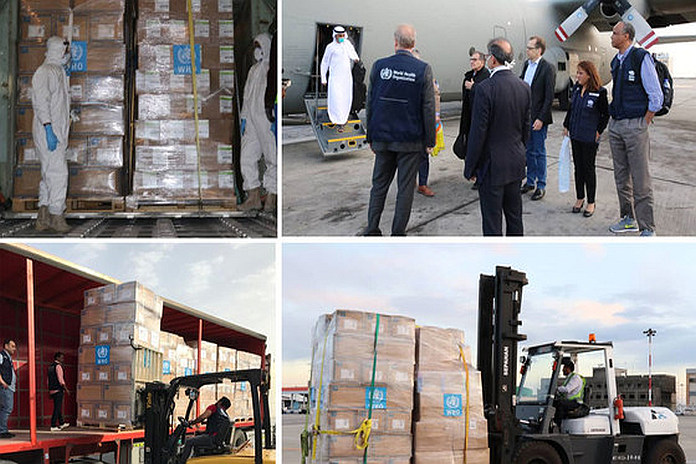GENEVA, Switzerland (UN News) — A shortage of protective equipment is endangering health workers worldwide, warned the World Health Organization (WHO) on Monday, citing “severe and mounting disruption to the global supply” caused by “rising demand, panic buying, hoarding, and misuse”.
In order to meet global demand for protective gear, the World Health Organization (WHO) is calling on industry and governments to significantly boost manufacture by some 40 percent. In addition, to secure supply chains, export restrictions must be eased, and measures to stop speculation and hoarding need to be put in place.
Speaking to the media in Geneva, WHO chief Tedros Adhanon Ghebreyesus said that “we can’t stop COVID-19 without protecting our health workers”. He warned that shortages of supplies such as gloves, medical masks, respirators, and aprons, are leaving doctors, nurses and other frontline healthcare workers “dangerously ill-equipped” to give proper care to patients.
The agency calculates that some 89 million medical masks, 76 million examination gloves, and 1.6 million goggles will be needed for the COVID-19 response every month while the epidemic lasts. WHO has supplied around half a million sets of protective equipment to 47 affected countries, but these supplies are rapidly running out.
Prices have surged since the COVID-19 outbreak: the cost of surgical masks has risen some 600 percent, and the price of gowns has doubled. Supplies can take months to deliver, says WHO, and market manipulation is widespread, with new stocks of equipment frequently going to the highest bidder.
Responding to the increase of COVID-19 related deaths in the Eastern Mediterranean region, in particular the 66 deaths reported in Iran, Ahmed Al-Mandhari, WHO regional chief described the situation as “deeply alarming”.
Al-Mandhari said that the region has the required expertise, capacities and tools to contain the outbreak, but “the window of opportunity is closing, and we need to move fast.
WHO, he added, is working to minimize the risk of the virus entering countries, particularly those with weaker health systems. Areas with high-risk factors, such as camps and cities hosting mass gatherings, are of key concern. “Countries in the region need to work together, share detailed and timely information, and show solidarity to those affected by the outbreak”, he said.
Whilst several organizations around the world have announced the cancellation, or scaling down, of events involving gatherings of large numbers of people, the International Olympic Committee (IOC) has expressed its “full commitment to the success of the Olympics Games Tokyo 2020”, in a statement released on Tuesday.
After hearing a report into COVID-19, the IOC’s executive board said that it is encouraging all athletes to continue preparing for the games, which are scheduled to take place from July 24 to August 9.
A joint task force has been set up, involving the IOC, the Tokyo organizing team, the Japanese government and the WHO; and international, national and regional sporting bodies are collaborating closely with regards to the preparation of the games, and addressing the challenges associated with coronavirus.





